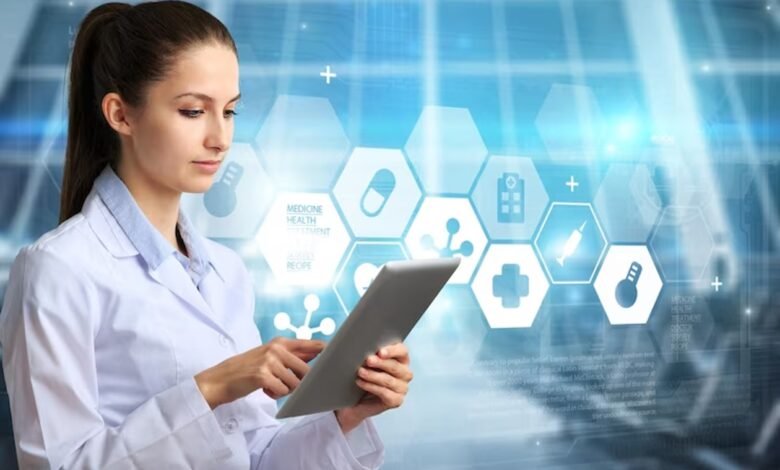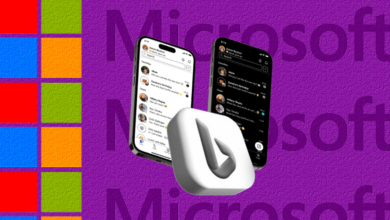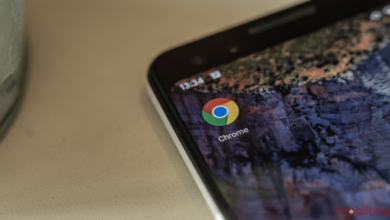The Top 10 Health Tech Trends for 2023

In the ever-evolving landscape of healthcare, the fusion of technology and innovation is propelling the industry toward unprecedented possibilities. As we step into 2023, the top health tech trends are set to transform the way we access, receive, and engage with healthcare services. From groundbreaking advancements in telehealth to the continued integration of artificial intelligence (AI) and the proliferation of wearable health devices, this year promises to be a defining moment for the intersection of health and technology.
Top 10 Health Tech Trends
The top 10 health tech trends for 2023 are not just shaping the industry; they are revolutionizing the patient experience, empowering healthcare professionals, and enhancing the overall quality of care. Whether you’re a healthcare provider, a technology enthusiast, or someone invested in their well-being, this insightful exploration of the latest health tech trends will shed light on the transformative journey that lies ahead. Join us as we delve into the future of healthcare, driven by innovation, and guided by the top health tech trends of 2023.
Telemedicine Reinvented
Telemedicine Reinvented
Health Tech Trends: Telemedicine, a term that has become commonplace, is undergoing a remarkable transformation in 2023. The concept of remote medical consultations is not new, but the way we experience it is evolving at a rapid pace. Let’s delve into how telemedicine is being reinvented for the better.
Seamless Virtual Consultations
One of the key aspects of the telemedicine reinvention is the seamless virtual consultation experience. In the past, virtual visits often came with technical glitches and a lack of personal connection. However, advancements in technology have made it possible for patients to connect with their healthcare providers effortlessly.
Imagine scheduling an appointment with your doctor through a user-friendly app, and with just a few clicks, you’re in a virtual waiting room. No more tedious sign-up processes or complex software installations. This streamlined approach makes healthcare more accessible to everyone, regardless of their tech-savviness.
Read More: Top 10 Tech Trends to Watch in 2023
AI-Powered Diagnostics
Health Tech Trends: The real game-changer in telemedicine’s reinvention is the integration of Artificial Intelligence (AI) in diagnostics. AI algorithms can now assist healthcare professionals in making more accurate and rapid assessments. When you consult with a doctor online, AI can analyze your symptoms, medical history, and even examine your vital signs through compatible devices.
This means quicker and more precise diagnoses. AI can identify potential health issues that might have been missed in traditional consultations. It’s like having a medical expert right at your fingertips, providing guidance and insights based on data-driven assessments.
Remote Monitoring Devices
Health Tech Trends: Telemedicine’s reinvention extends to the use of remote monitoring devices. Patients with chronic conditions can benefit greatly from these devices, which allow continuous health tracking from the comfort of home. Whether it’s measuring blood pressure, glucose levels, or heart rate, these devices transmit real-time data to healthcare providers.
For instance, if you’re managing diabetes, a smart glucose monitor can send data directly to your doctor, who can then adjust your treatment plan accordingly. This proactive approach to healthcare can prevent complications and reduce the number of in-person visits required.
Artificial Intelligence in Diagnostics
Health Tech Trends: AI is poised to revolutionize diagnostics. Machine learning algorithms can analyze medical images, lab results, and patient histories faster and more accurately than ever before. This will lead to earlier disease detection and personalized treatment plans.
Blockchain in Healthcare
Health Tech Trends: Blockchain technology ensures the security and integrity of health records. Patients will have more control over their data, and healthcare providers can securely share information, leading to improved patient outcomes.
Digital Therapeutics
Prescription digital therapeutics are gaining ground. These software-based interventions will complement traditional treatments, helping patients manage chronic conditions more effectively.
Robotic Surgery Advancements
Robotic-assisted surgery is becoming increasingly precise. Surgeons will be able to perform complex procedures with enhanced dexterity and minimal invasiveness, reducing patient recovery times.
Wearable Health Tech
Wearable devices will continue to gain popularity. Beyond fitness tracking, these devices will monitor vital signs, detect anomalies, and provide real-time health insights, making prevention a priority.
Genomic Medicine
Genomics will play a central role in healthcare. Tailored treatments based on an individual’s genetic makeup will become more common, improving treatment outcomes and reducing adverse reactions.
5G-Enabled Healthcare
The advent of 5G technology is poised to revolutionize the healthcare industry in 2023. As we transition to this new era of connectivity, the applications of 5G in healthcare are both promising and transformative.
Lightning-Fast Data Transfer
Health Tech Trends: One of the most immediate and impactful benefits of 5G in healthcare is its lightning-fast data transfer capabilities. With data speeds up to 100 times faster than 4G, 5G enables near-instantaneous transmission of large medical files, high-resolution images, and real-time patient data.
Imagine a scenario where a medical specialist in one part of the world can perform a remote surgery with the assistance of a surgical robot located thousands of miles away. The low latency and high bandwidth of 5G ensure that there is virtually no delay in communication, making such procedures not only possible but incredibly precise.
Telemedicine Gets a Boost
Health Tech Trends: Telemedicine has gained prominence in recent years, and 5G is set to take it to the next level. With the enhanced connectivity offered by 5G networks, virtual medical consultations will become even more immersive and efficient. Patients can engage in high-definition video calls with healthcare professionals, discussing their concerns and receiving real-time feedback without disruptions.
Moreover, the increased reliability of 5G ensures that telemedicine can reach remote areas with poor network coverage, bringing healthcare access to underserved populations worldwide. The possibilities for telemedicine with 5G are truly limitless.
Internet of Things (IoT) in Healthcare
Health Tech Trends: 5G is the backbone that the Internet of Things (IoT) in healthcare relies upon. IoT devices, such as wearable health trackers and smart medical equipment, will benefit immensely from the low latency and high-speed data transfer of 5G networks.
These devices can transmit a constant stream of patient data to healthcare providers, enabling real-time monitoring of vital signs and health conditions. This level of connectivity allows for early detection of health issues and timely interventions, potentially saving lives.
Virtual Reality (VR) for Therapy
In 2023, the world of therapy is embracing an innovative and immersive approach through the use of Virtual Reality (VR). VR therapy is poised to revolutionize mental health treatment by offering patients new ways to address a variety of psychological challenges.
A New Dimension in Mental Health
Health Tech Trends: Traditional therapy often involves sitting in a therapist’s office and engaging in conversation. While this approach has been effective for many, VR therapy adds a new dimension to mental health treatment. It provides individuals with an opportunity to step into a different world, one where they can confront and manage their psychological issues in a unique and captivating way.
Immersive Exposure Therapy
Health Tech Trends: One of the most significant applications of VR therapy is in exposure therapy. This technique is commonly used to treat phobias, post-traumatic stress disorder (PTSD), and anxiety disorders. Instead of merely discussing fears or traumas, patients can now virtually immerse themselves in controlled environments designed to trigger these emotions.
For instance, a person with a fear of flying can undergo VR exposure therapy by experiencing a simulated flight. The therapist can carefully control the intensity of the exposure, gradually helping the patient confront and manage their fear in a safe and controlled setting.
Addressing PTSD and Anxiety
Health Tech Trends: VR therapy is particularly promising for individuals dealing with PTSD or severe anxiety. These conditions often involve reliving traumatic experiences or dealing with overwhelming anxiety triggers. VR provides a controlled and customizable environment where patients can confront their fears without being physically exposed to them.
Patients with PTSD can work with therapists to recreate and process traumatic events in a controlled VR environment. This can be a vital step in their healing journey, allowing them to gradually desensitize themselves to their traumatic memories.
Bioinformatics and Big Data
Health Tech Trends: The integration of bioinformatics and big data analytics will lead to groundbreaking discoveries in healthcare. This data-driven approach will enable researchers to identify new treatment pathways and predict disease outbreaks.
Read More: Best Technology Gadgets for Children in 2023
Conclusion
The year 2023 promises to be a remarkable one for health tech. From the reinvention of telemedicine to the incorporation of AI in diagnostics and the use of blockchain for secure health records, these trends will reshape healthcare delivery. As technology continues to advance, patients can look forward to more personalized, efficient, and accessible healthcare services.
As 2023 unfolds, we can expect to see VR therapy gaining more prominence in the field of mental health. It’s a testament to the ever-evolving landscape of healthcare, where technology continues to play a pivotal role in improving the well-being of individuals around the world.
FAQs
What is telemedicine reinvented?
Telemedicine reinvented in 2023 refers to the enhanced virtual healthcare experience, incorporating AI diagnostics and remote monitoring for comprehensive patient care.
How does blockchain benefit healthcare?
Blockchain ensures the security and integrity of health records, giving patients more control over their data and allowing secure sharing of information among healthcare providers.
What are prescription digital therapeutics?
Prescription digital therapeutics are software-based interventions prescribed by healthcare providers to help patients manage chronic conditions effectively.
How does 5G benefit healthcare?
The rollout of 5G networks enables faster data transfer, enhancing telemedicine, remote surgery, and IoT devices in healthcare, ensuring seamless connectivity.
What is the role of bioinformatics in healthcare?
Bioinformatics and big data analytics in healthcare help researchers identify new treatment pathways and predict disease outbreaks by analyzing vast amounts of biological data












2 Comments